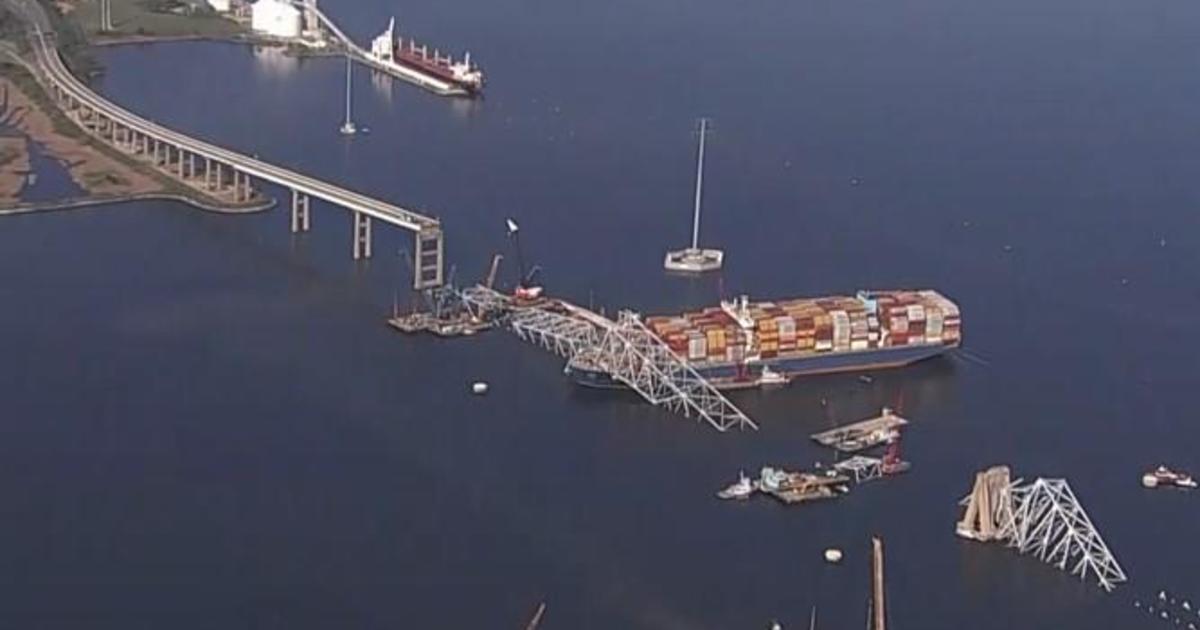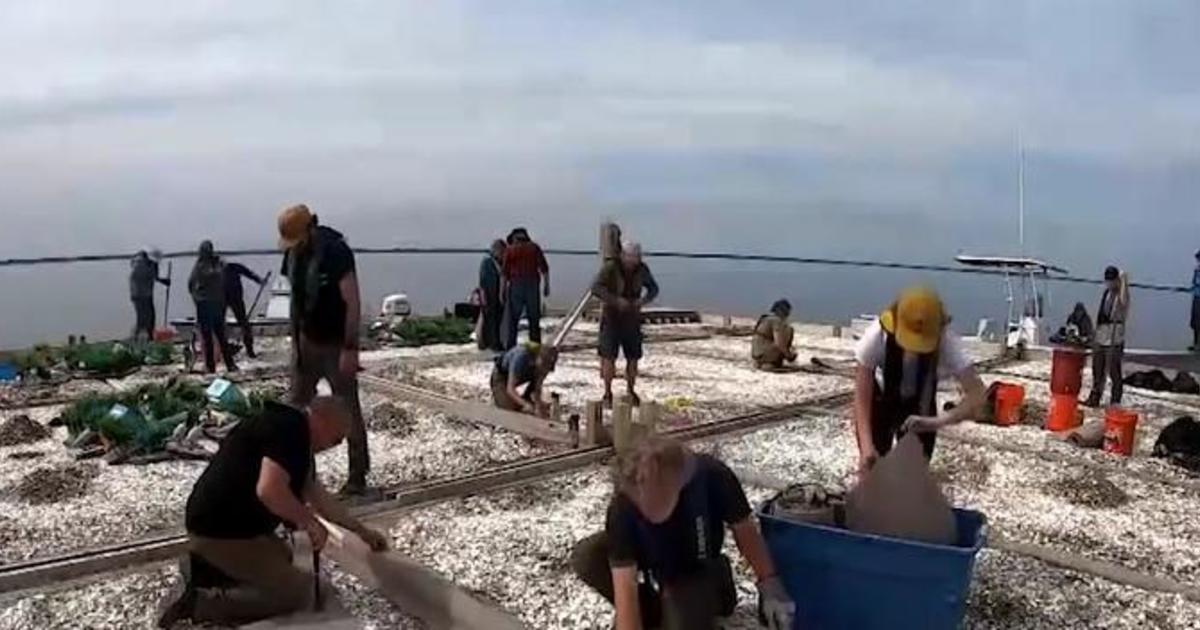Trip Across Wicomico River Is One Back In Time
VANESSA JUNKIN
The Daily Times
WHITEHAVEN, Md. (AP) -- It's a hot summer morning in Whitehaven.
The village is quiet.
As the Whitehaven Ferry moves back and forth across the Wicomico River, there's a small but steady flow of vehicles pulling up to a stop sign near the Whitehaven Hotel and waiting to board the ferry.
Vehicles are pulling up on the other side, too, where there is marshland in the Mount Vernon area of Somerset County.
It's 11 a.m., and Dale McDorman has already been working for five hours. As a ferry operator, he takes passengers and their vehicles from one side of the river to the other in a trip that takes four or five minutes each way.
He's been a ferry operator for eight years, and with the job comes long days. On the days he works, he works from 6 a.m. to 7:30 p.m. -- the same length of time the ferry is open each day.
It is a Tuesday. McDorman has already worked Sunday and Monday, and he'll be off Wednesday before working Thursday through Saturday. Then, he'll take the following week off.
The ferry operator job is one that's existed on the Wicomico River since colonial times, says Jefferson Boyer, assistant innkeeper at the Whitehaven Hotel and former president of the Whitehaven Heritage Association. He's lived in the village for 20 years.
"That job's older than the state of Maryland; it's older than Wicomico County," Boyer says.
Martha Parks, 53, of Mount Vernon, pulls her bicycle up to the ferry on the Whitehaven side at about 11 a.m. She has already pedaled 66.22 miles from the Oxford-Bellevue Ferry, having left at about 5:30 that morning.
She had stayed up there with her husband, and he drove back while she returned to Whitehaven on bike, traveling through Preston, Hurlock, Sharptown and Hebron along the way.
After crossing the ferry, she'll have only about a mile to go before reaching her
destination: home.
A little while later, Tom Hubric, 72, of Waterview Foods is riding the ferry from the Mount Vernon side to the Whitehaven side. Making the crossing with him are about 30 dozen eggs.
He has farms both in the Princess Anne area and in Waterview, the community at the end of Nanticoke Road, where he lives. He wouldn't be able to do what he does without the ferry, he says. He rides it daily.
"It'd just be too costly," Hubric says.
Boyer has done plenty of research on the Whitehaven Ferry.¡
A ferry has taken riders across the lower part of the Wicomico River since at least 1687, likely in the same spot it is now, he says.
He brings up a much newer problem: The GPS.
"People are not paying attention to road signs," Boyer says.
So large vehicles -- including at least three tractor-trailers he can recall in the last year-and-a-half or so, as well as a tour bus -- have made their way out to the ferry on the Somerset County side and have gotten stuck.
Some wonder why a bridge isn't built to span the two sides.
There used to be many more ferries in places where there are now bridges, Boyer says. He notes the traffic volume doesn't justify the construction, and a bridge would have to go over the marshland on the Somerset County side.
The Whitehaven Ferry is like a "trading post," Boyer says, adding riders get a chance to talk with others during the crossing.
And guests at the Whitehaven Hotel, situated right on the water with clear views of the river, enjoy watching the ferry as it moves across the water. "It keeps them entertained `til breakfast is on the table," he says.
There is no shortage of stories surrounding the Whitehaven Ferry.
Pat Russell, a former Whitehaven resident who now lives in Quantico, told of a ferry operator who drove his car onto the ferry after it was closed the night of Christmas Eve, hoping to make it to the other side.
She wasn't sure of the year, but estimated it was between 1976 and 1986.
She doesn't know the ferry operator's real name; "Everybody called him `Slug,"' she says.
With law enforcement officials waiting on both sides, the operator had to decide who he'd want to turn himself in to, she says, and the incident involved Slug's car beginning to sink.
Russell feels Judge Lloyd "Hot Dog" Simpkins made the right choice in saying there was no case against Slug. She explains Simpkins determined the ferry was not actually stolen -- it had been attached to the cable the entire time.
Like Boyer mentioned when he told the story, Russell agrees nobody knows who called the police about the incident. "It's very definitely a mystery," she says.
Many years earlier, a couple got married on the ferry.
Tommy Northam of Princess Anne says his aunt and uncle, Mary Ellen "Nellie" McIntyre and Clarence Edward Phillips, wanted to get married in Somerset County, but their marriage license was in Wicomico County.
Due to the license, the couple had to get married in Wicomico County, but the location for the 1912 wedding was about as close to Somerset County as they could be.
Northam says the couple was taken halfway across the Wicomico River, and the officiant performed the ceremony on the Wicomico County side of the county line in the river.
A little more than 10 miles away, going toward Salisbury, is the Quantico-area side of the Upper Ferry, which also crosses the Wicomico River.
It only takes about a minute to ride the ferry to the other side of the river, to the Eden area.
Charles Jones, who is operating the ferry and has the same long-day schedule as McDorman, says he doesn't mind being on the water, as he used to cook in the Navy during the Vietnam War. He estimates he makes 150 trips across the river per day.
Being a ferry operator isn't a tough job, Jones says, but it does involve paying attention. Prior to becoming a ferry operator, he'd worked in Wicomico County's shop.
The heat doesn't bother him, either, as he can feel the breeze. On this hot day, one passenger brings Jones a red freeze pop.
People who ride the ferry often generally know how far to pull up so three vehicles can fit on board, Jones says. It's easy for him to point out which drivers are going to work, which are coming from work, and which drivers are not regular passengers, as he doesn't recognize their cars. Jones and McDorman both say passengers don't call the ferry hotline -- a number offering information on ferry closures due to weather, tide, repairs or other reasons. People tend to get mad if the ferry isn't open, Jones says.
Both the Whitehaven and the Upper ferries, which each travel along cables through the water, are free.
Sometimes there's a line of cars waiting for the ferry, and since only three vehicles can fit and a maximum of six passengers are allowed to ride at one time, that involves waiting for more than one trip.
Boyer notes a saying he's heard: "The ferry is a gift, not a given."
Those who want to ride the ferry must expect the possibility of encountering a line and plan to arrive before the last trip. If the "Ferry Closed" sign hangs across the ferry, latecomers have no choice but to drive around the river.
"When the ferry's closed, it's closed," Boyer says.
(Copyright 2013 by The Associated Press. All Rights Reserved.)



